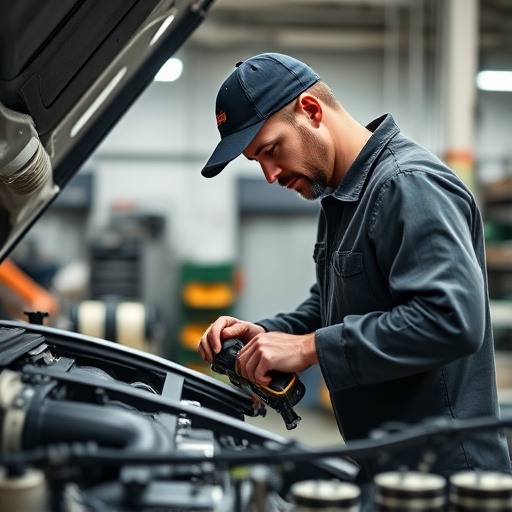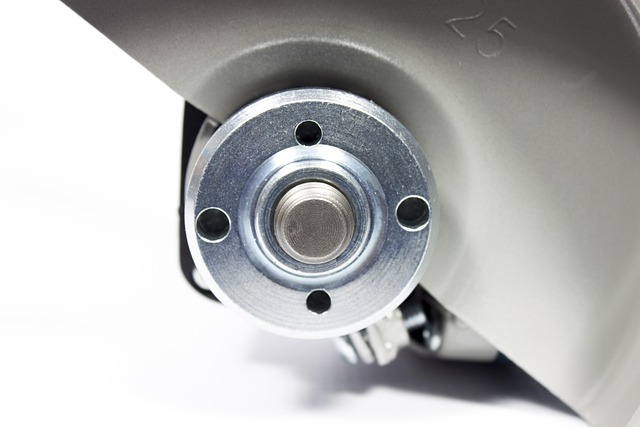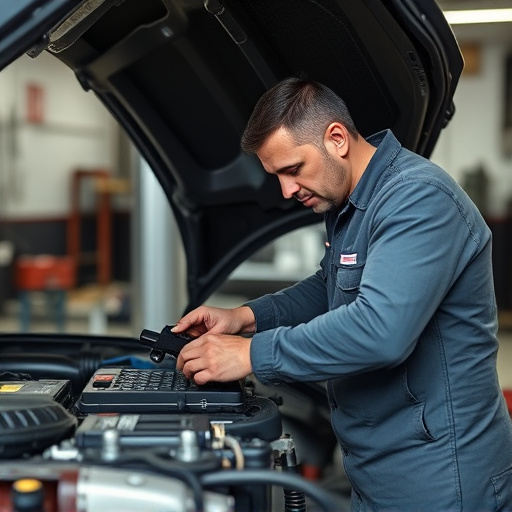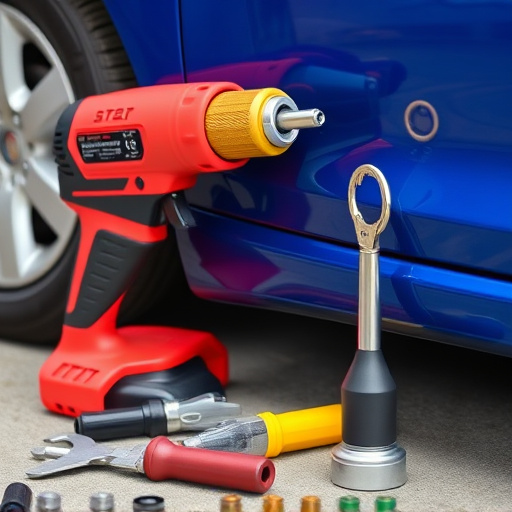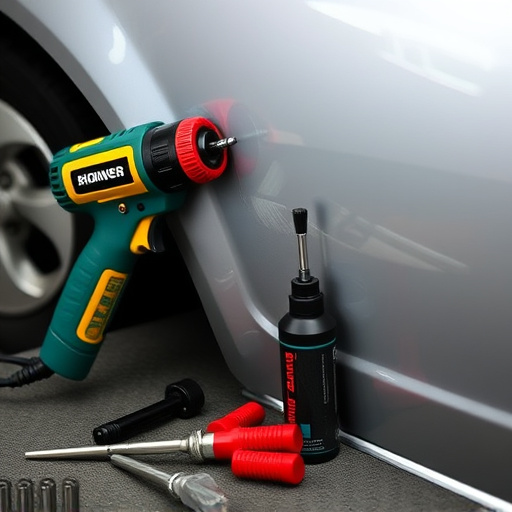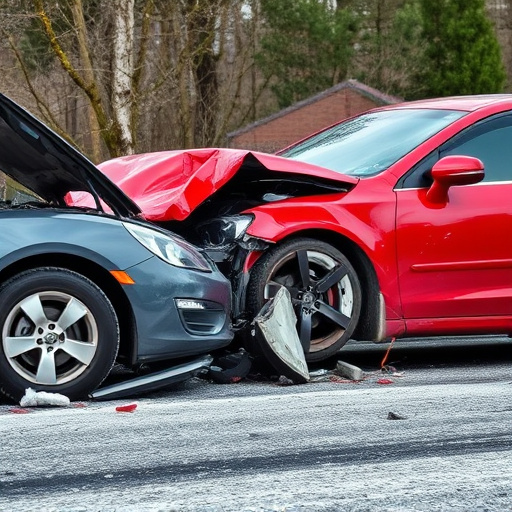Airbag deployment during a collision can cause significant damage to a vehicle's battery, leading to safety and performance issues. Older or poorly maintained batteries are more susceptible to failure. Thoroughly evaluating battery damage post-crash is crucial for optimal vehicle operation, as qualified auto body experts can detect signs of harm, corrosion, or fluid leakage. Regular maintenance, including cleaning terminals and addressing leaks, prevents short circuits. Comprehensive auto body work and timely fluid replacements further safeguard electrical components, emphasizing the importance of considering battery replacement after a crash.
Airbags are designed to save lives, but their deployment can cause hidden damage. This article explores the intricate relationship between airbags and vehicle batteries, focusing on the question: should you replace your battery after an airbag deployment? We delve into the potential impact of airbags on batteries, guiding you through understanding when a battery replacement is necessary post-crash. Safety measures and maintenance tips are also highlighted to ensure peace of mind.
- Understanding Airbag Deployment and Its Impact on Batteries
- When is Battery Replacement Necessary After a Crash?
- Safety Measures and Tips for Post-Crash Battery Maintenance
Understanding Airbag Deployment and Its Impact on Batteries
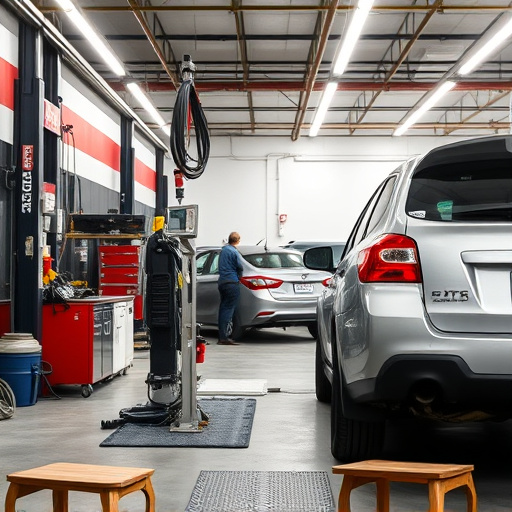
When airbags deploy during a collision, they rely on rapid chemical reactions to inflate and protect occupants. This intense process generates significant electrical energy, which can lead to several consequences for various components in a vehicle, including its battery. The impact of airbag deployment on batteries is often overlooked, but it’s crucial to understand that this event can cause temporary or permanent damage.
During deployment, the sudden discharge of electricity can cause the battery to experience extreme pressure and temperature changes. In some cases, this might result in a short circuit or even physical damage to the battery terminals and casing. While modern batteries are designed with safety mechanisms to prevent such issues, older or poorly maintained batteries are more susceptible to failure after an airbag deployment. Therefore, considering battery replacement after a crash becomes essential, especially when navigating through processes at an auto dent repair or collision repair shop.
When is Battery Replacement Necessary After a Crash?

In the aftermath of a collision, determining the extent of vehicle damage is crucial, especially when it comes to the battery. While airbags provide immediate protection during an accident, they don’t always guarantee the safety and integrity of every component in the vehicle. A thorough inspection by a qualified auto body restoration expert is essential to gauge whether the battery has sustained any damage that could affect its performance or longevity.
Battery replacement after a crash may be necessary if there are signs of physical harm, corrosion, or fluid leakage. Even if the battery appears intact at first glance, internal damage can occur due to the sudden impact and deployment of airbags. A collision repair shop will have the tools and expertise to diagnose any issues and recommend appropriate auto maintenance measures, ensuring your vehicle is safe to operate following a crash.
Safety Measures and Tips for Post-Crash Battery Maintenance
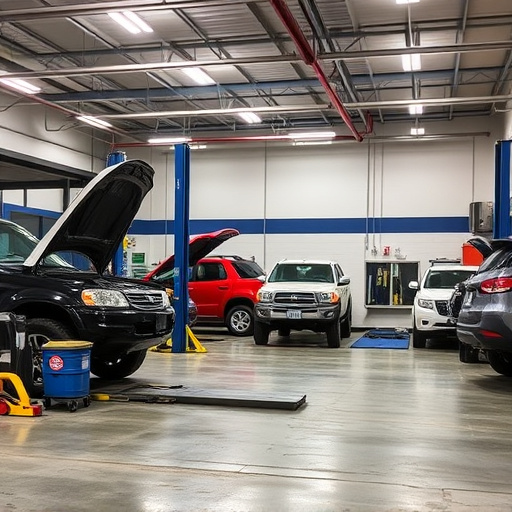
After a crash, ensuring your vehicle’s safety systems are functioning properly is paramount. When airbags deploy, they put significant strain on the electrical system, including the battery. While not every case requires a battery replacement after a crash, it’s crucial to have it checked by a professional mechanic. They can perform diagnostic tests to determine if the battery has sustained any damage or power loss.
Regular post-crash battery maintenance is essential. This includes keeping the battery terminals clean and tight, as corrosion can disrupt power flow. If your vehicle was extensively damaged, consider comprehensive auto body work and tire services to ensure all components are in optimal condition. Additionally, regularly checking and replacing any fluid leaks, such as antifreeze or brake fluid, will safeguard against short circuits and further damage to your battery.
While airbags are crucial safety features designed to minimize injury during a collision, they can subject car batteries to extreme stress. In some cases, a battery may require replacement after an airbag deployment due to power surges or internal damage. Understanding when and how to replace your battery post-crash is essential for ensuring the continued reliable operation of your vehicle’s electrical system. Always consult with a qualified mechanic to assess any necessary repairs, including battery replacement, following a collision to maintain safety on the road.

